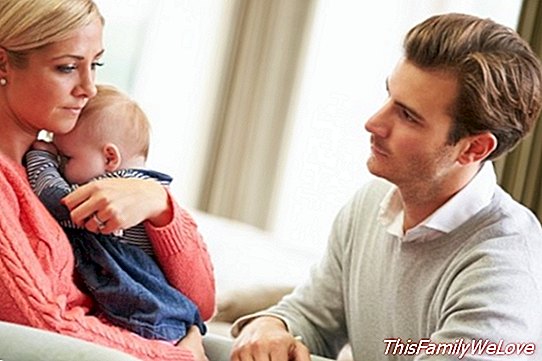Genetics could explain postpartum depression
After the birth of a child, the home becomes a source of happiness and joy before the arrival of a new member to the family. However, in some cases, the woman plunges into a deep state of sadness and fatigue. A disorder that is known as postpartum depression and that makes the mother see difficulties in her daily activities and the care of her children.
There is not a single motive that originates the postpartum depression as they explain from the National Institute of Mental Health, NIMH. Of course, experts say that it is something that unfortunately can be controlled and there is no way to avoid it. Now, a group of researchers from John Hospkins Institute has made an approach to this disorder to explain it from the genetic point of view. A way to be alert and be alert to the increase of possibilities in these women.
Check through the blood
The study brought together 52 pregnant women, who underwent different tests to detect possible symptoms prior to postpartum depression. Among all these tests a blood test was present. After these checks it was determined that the alteration of 2 genes was a symptom that after the conception this disorder was going to appear, at least that was the case in 85% of the cases.
The researchers noted that thanks to these findings it is possible that mothers and other close relatives have an easy and quick way to check the chances of postpartum depression. A blood test that can be done in any quarter, yes, specialists emphasize that we must continue working from these results in this new perspective.
"We do not have a reliable method of analyzing the condition before it causes damage, and tests like this could be an acceptable formula," he explains. Zachary Kaminsky, director of this investigation. In this way, therapies could be used to treat postpartum depression before it even appears and to create an environment conducive to the mother from the moment in which this test is done.
At the same time, the need to check the ambient in which the birth occurs and the days after it. From NIMH these explanations are offered for the increase of the possibilities of postpartum depression and that are related to the environment of the woman:
- Symptoms of depression during or after a previous pregnancy
- History of depression, both in women and in relatives - A stressful situation during pregnancy or shortly after giving birth, such as loss of employment, death of a loved one, domestic violence or illness
- Medical complications during delivery, such as premature birth or the baby is born with medical problems
- Lack of emotional support from your spouse, partner, family or friends

Treatment of postpartum depression
If the mother is going through a postpartum depression, it is imperative that the baby be started as soon as possible. treatment to restore both the mother and the rest of the household to normalcy. From NIMH, the following therapies are explained as the most common:
- Psychological therapy. This treatment involves talking individually with a mental health professional. He will diagnose the situation and give a diagnosis to the woman and how she should proceed.
- Medicines. Antidepressant medications act on brain chemicals that are involved in the regulation of mood. Many of these drugs take a few weeks to be more effective. They are usually considered safe to use during breastfeeding, but in any case the woman should consult with her doctor about the risks and benefits that these medications imply for both herself and her baby.
Damián Montero




